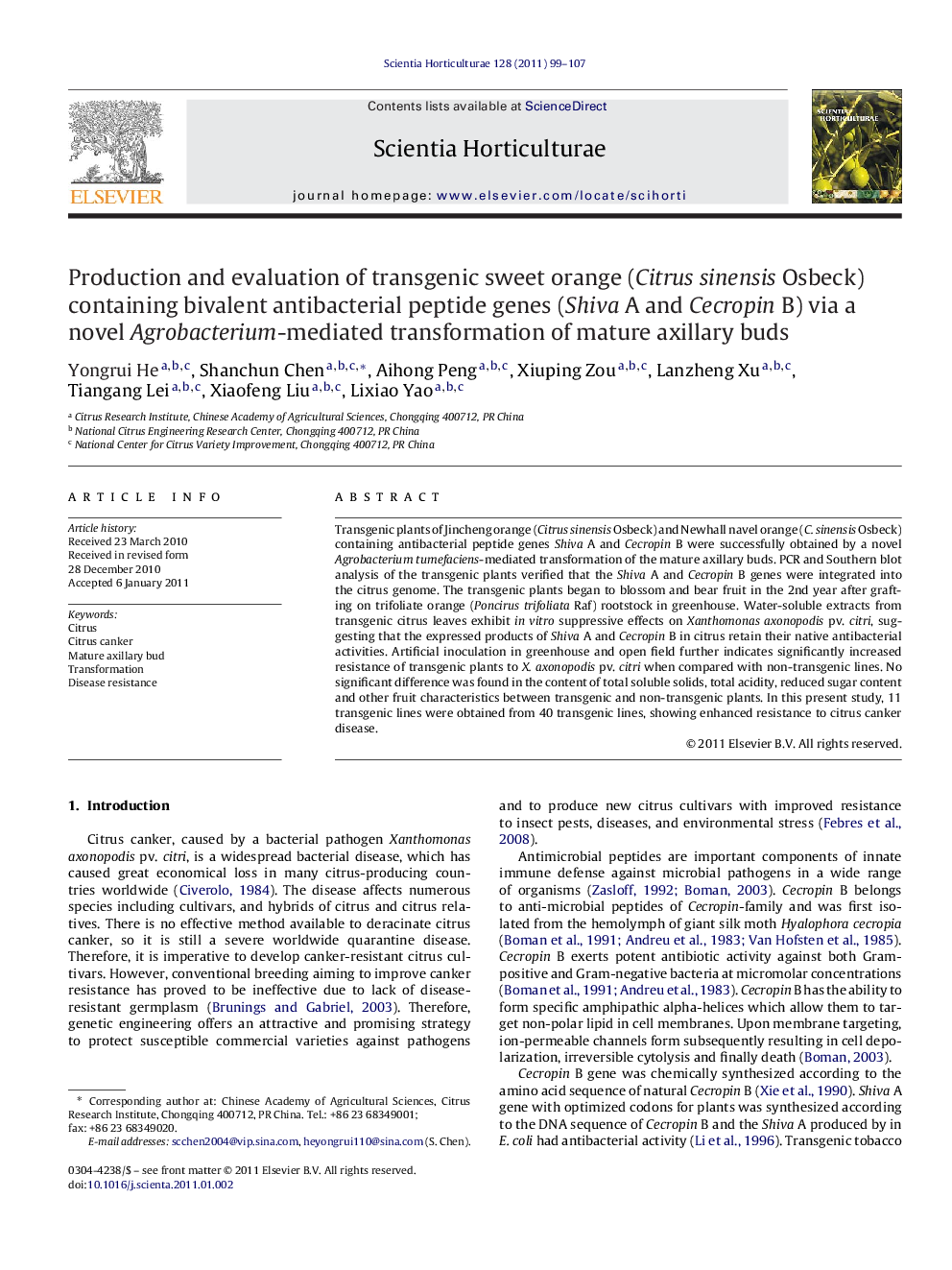| Article ID | Journal | Published Year | Pages | File Type |
|---|---|---|---|---|
| 4568448 | Scientia Horticulturae | 2011 | 9 Pages |
Transgenic plants of Jincheng orange (Citrus sinensis Osbeck) and Newhall navel orange (C. sinensis Osbeck) containing antibacterial peptide genes Shiva A and Cecropin B were successfully obtained by a novel Agrobacterium tumefaciens-mediated transformation of the mature axillary buds. PCR and Southern blot analysis of the transgenic plants verified that the Shiva A and Cecropin B genes were integrated into the citrus genome. The transgenic plants began to blossom and bear fruit in the 2nd year after grafting on trifoliate orange (Poncirus trifoliata Raf) rootstock in greenhouse. Water-soluble extracts from transgenic citrus leaves exhibit in vitro suppressive effects on Xanthomonas axonopodis pv. citri, suggesting that the expressed products of Shiva A and Cecropin B in citrus retain their native antibacterial activities. Artificial inoculation in greenhouse and open field further indicates significantly increased resistance of transgenic plants to X. axonopodis pv. citri when compared with non-transgenic lines. No significant difference was found in the content of total soluble solids, total acidity, reduced sugar content and other fruit characteristics between transgenic and non-transgenic plants. In this present study, 11 transgenic lines were obtained from 40 transgenic lines, showing enhanced resistance to citrus canker disease.
Research highlights▶ A novel citrus transformation system for mature axillary bud has been established. ▶ We obtained many transgenic plants containing Shiva A and Cecropin B via this system. ▶ The resistance to citrus canker of these transgenic plants has been evaluated. ▶ 11 transgenic lines were obtained and exerted enhanced resistance to citrus canker.
